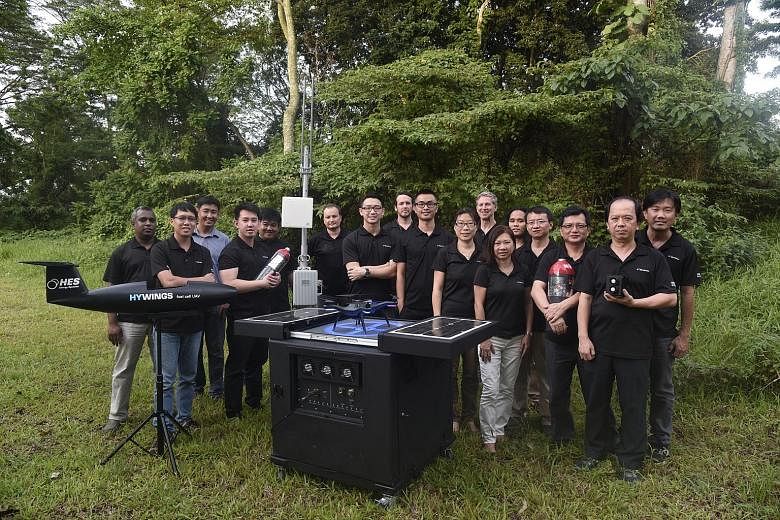Singapore's first accelerator for aerospace start-ups will take wing next week at a major tech industry event.
Paris-based aerospace accelerator Starburst will officially set up its first Asian outpost here on Sept 21, as part of the Singapore Week of Innovation and Technology (Switch).
Accelerators support early-stage, growth-driven companies through mentorship, contact-building and financing. Starburst is a bridge between the heavily regulated, insular aerospace industry and innovative start-ups with new business models, said co-founder and chief operating officer Van Espahbodi.
"Our programme is designed to behave as a neutral territory between the two worlds of 'old aerospace' and nascent businesses which are accelerating product development," he told The Straits Times. "We are opening the doors so more people can come and play in this industry."
Starburst has offices in Paris, Munich and Los Angeles, and intends for Singapore to become its gateway to the rest of Asia given the Republic's role as the region's leading aviation hub, he added.
Starburst's launch event next week will see 10 to 12 start-ups from all over the world - including Singapore, the United States, Australia, India, Japan, South Korea and France - pitching their ideas to a panel of aerospace players such as Thales, Safran, Northrop Grumman and Eutelsat.
One Singapore company making a presentation is robotics solutions firm H3 Dynamics. It makes unmanned aerial vehicles as well as ultra-light, long-lasting portable power systems, and builds drones which can collect and send data back from remote areas.
The technology can be applied in various industries, including oil and gas, construction, mining and security, said founder and chief executive officer Taras Wankewycz.
The company is also working to develop aircraft powered by electric motors rather than internal combustion.
"We're not a one-trick pony. We've got many different products under development and we hope to conquer the world in this arena over the next few years," said Mr Wankewycz, a serial entrepreneur who started his first firm here in the hydrogen fuel cell industry in 2003.
The company intends to expand globally from its base in Singapore. It has set up a unit in Austin, Texas, to develop the North American market, and has plans to cover Japan by the year end. The company is also setting up an office in Paris.
Starburst's connections with large aerospace firms make it a "great matchmaking vehicle" for start-ups, said Mr Wankewycz.
"They interface with a lot of big companies which tend to do work in-house, and usually don't work too much with small companies like ours," he added.
Another Singapore-based company working with Starburst is AirGo Design, which has redesigned economy-class seats to make them lighter, self-cleaning and more ergonomic than existing seats on long-haul flights.
"The economy-class seat has hardly changed and has possibly got worse in the past few decades, while there has been a great deal of innovation in business- and first-class seats," said chief commercial officer Jere Tala. "This is a huge opportunity to change the way we all travel."
The company will launch its first seat - built in Singapore together with its partners Hope Technik and Excel Aerospace - next month.
But complex airline industry certification processes mean that it will take at least another year for the seat - now three years in the making - to be fully certified and mass produced.
"Aviation is a highly regulated industry, and it can be very difficult for a company which has not yet established itself to get through the right doors and talk to the right people," said Mr Tala, who has worked in the airline and travel industry for more than 20 years.
"Our long-term goal is to introduce completely new materials inside the aircraft, but the certification process is long and tedious, so we're starting with materials that are already accepted."
Mr Tala said the company sees strong growth prospects in Asia-Pacific and the Middle East, where airline passenger numbers are expected to surge in the coming decade.
"The United States and Europe are no longer the trendsetters," he added.


